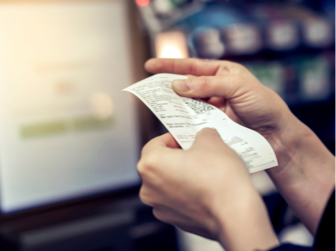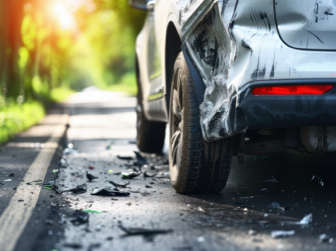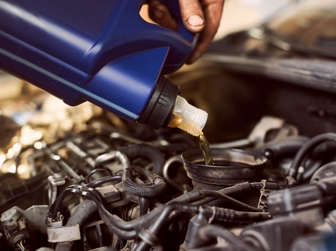South Africans know all too well how unnerving it can be to be pulled over, whether you’re innocent or not. To help you stay calm and confident, we’ve listed everything you need to know about your rights and the law should you have to stop.
South African road laws exposed: get to know your rights
Everyone knows what it means when there’s a long line of cars and traffic cones blocking off the road—roadblocks. These are normal and happen all around the world. While it can be frustrating waiting your turn or dealing with merging cars taking your lane, road laws are designed to keep you and other motorists safe. These checks ensure that every driver is processed efficiently and fairly.
Road rules explained
There are terms and road law lingo that you may have come across and then there are some that many drivers won’t be clued up on.
Roadblocks
Motorists can spot a roadblock from anywhere. This is when officials, whether from the metro or police force—or sometimes both—block off the road to conduct checks. Most of the time, we might think it's to check license discs and driver's licences, however, they may be obliged to conduct a thorough search for any criminal activities too.
As stated in Section 13(8)a of the South African Police Service Act, no.68 of 1995:
“The National or Provincial Commissioner may, where it is reasonable in the circumstances in order to exercise a power or perform a function referred to in section 215 of the Constitution, in writing authorise a member under his or her command, to set up a roadblock or roadblocks on any public road in a particular area or to set up a checkpoint or checkpoints at any public place in a particular area.”
Roadblocks: what may be done and what may not be done
The South African Police and Traffic Police are authorised to do the following:
- Conduct a search of the individual and property without a warrant at a roadblock.
- Conduct a search of the individual and property if you consent or have reasonable grounds to do so.
- Confiscate contraband without a warrant as evidence during a roadblock.
- Arrest an individual who has an outstanding warrant issued by the court.
- Arrest an individual who is committing an offence during the roadblock.
- Drive or ride any class of vehicle if necessary.
- Inform drivers of any outstanding fines.
What they cannot do:
- They may not assault you or physically damage your property.
- Conduct searches without a warrant unless at a roadblock, with reasonable grounds, or with your consent.
- Threaten you with arrest.
- Solicit or accept bribes.
- Force you to pay traffic fines on the roadside, even if facilities are available.
- Withhold the return of your driving licence to coerce fine payments unless there is a valid warrant or the licence is fraudulent.
- Discontinue or impound your vehicle without reasonable grounds.
What to do if you’re pulled over by the police
You are entitled to:
- Request to see the officer’s certificate of appointment (authorising them to act as a peace officer).
- Demand written authorisation as per Section 13(8) of the SAPS Act during roadblocks.
- Request proof of a warrant of arrest if claimed to exist.
- Refuse arbitrary searches unless reasonable grounds exist.
You may not:
- Physically or verbally abuse law enforcement officers or damage their property.
- Refuse to provide a breath or blood sample when requested.
- Resist arrest.
- Offer or pay a bribe.
Make sure your car is roadworthy
- Tyres: Tyres with a tread depth of less than 1.6 mm or signs of excessive wear.
- Brakes: Faulty braking systems, including malfunctioning parking brakes.
- Lights: Broken or non-functional headlights, taillights, or indicators.
- Steering: Misaligned wheels or a steering mechanism that is not functioning properly.
- Suspension: Leaking or faulty shock absorbers that affect vehicle stability.
- Engine: Issues such as overheating, leaks, or significant damage to the engine compartment.
- Bodywork: Extensive rust or structural damage to the body or chassis, which could pose a risk to pedestrians or cyclists.
- Seats and Seatbelts: Damaged or non-functional seats and seatbelts that fail to ensure passenger safety.
- Electrical Systems: Malfunctioning electrical components, such as windshield wipers or dashboard lights.
Driving an unroadworthy vehicle is not only illegal but also poses significant dangers to the driver, passengers, and other road users. Such vehicles increase the likelihood of accidents, injuries, and fatalities. Regular maintenance and inspections are essential to ensure safety on the road.
Abiding by South African road rules
Since 15 October 2024, police have carried out 3,364 roadblocks nationwide. In addition, officers have conducted over 200,000 stop-and-search operations and 26,569 vehicle checkpoints. So far, more than 500,000 vehicle and foot patrols have been conducted in communities across the country.
The fact of the matter is, whether you’re pulled over for speeding or stopped at a roadblock, it’s best to comply with the process, and before you know it, it will be over.
Always remember to keep your car documents and licences up-to-date. Learn more about how to renew your car licence online.
What You Need to Know About South Africa’s Most Stolen Cars
Toyota's New Corolla Cross Will Make You Want to Buy One


